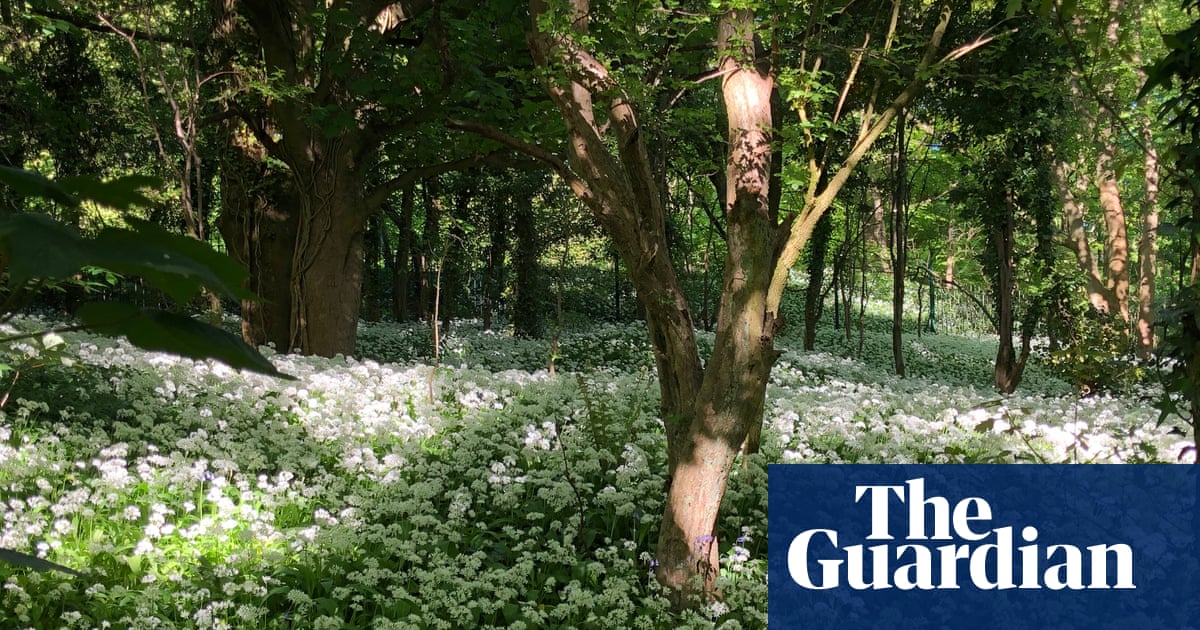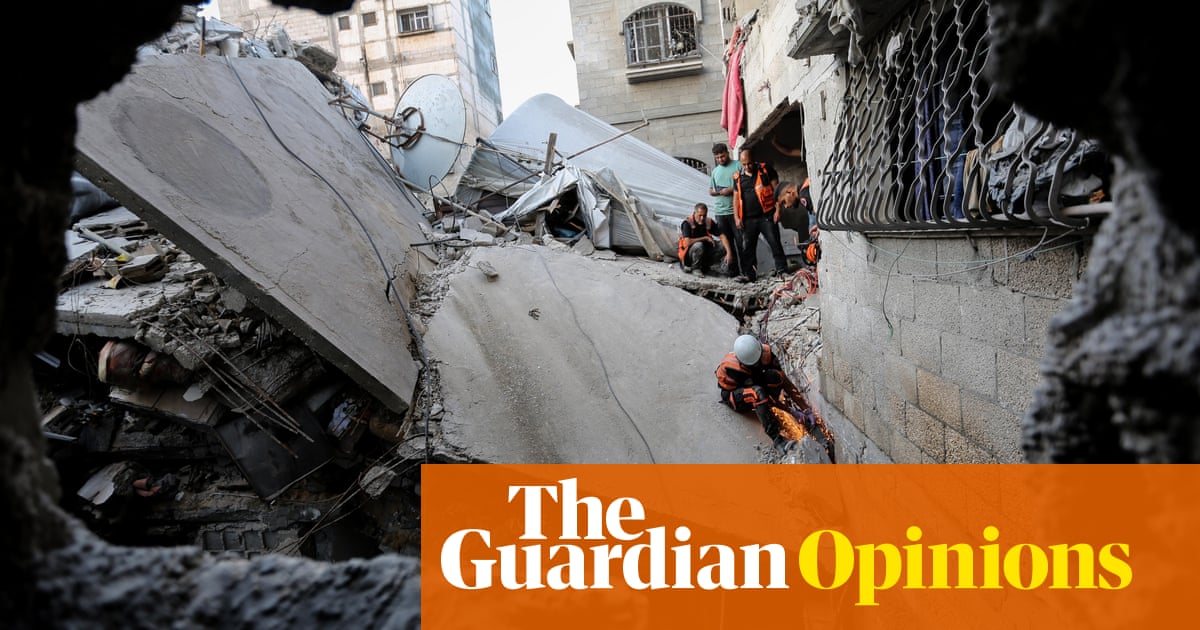
Ashley Monroe
I started writing songs after my father died when I was 13. I used music to release the sadness that was flooding my heart and held on to my guitar like it was a float in an ocean. As an artist, I’ve always wanted to provoke chills, because to me that means I’ve connected with the spirit that’s giving me the music.
I’ve become known as a purveyor of sad songs, but this album is different. Life and motherhood have changed me. I’ve realised that so many things I used to lose sleep about don’t really matter. Melodies were coming to me that sounded heavenly and blissful. Long chapters of my life have been very hard, so I thought, what if I just freeze, y’know, this joy?
It’s not as if I skip round the house singing a happy song all day. We’re in a pandemic and I know people are hurting. Everyone’s affected by sadness and it’s so heavy and I just want to help people escape that, even for 37 minutes. In the darkest moment, there is always light, even if it’s just inside yourself. Ashley Monroe’s new album Rosegold is released 30 April on Thirty Tigers
Damon Locks, Black Monument Ensemble
During the summer, around the uprisings following the deaths of George Floyd, Ahmaud Arbery and Breonna Taylor, people were returning to [Black Monument Ensemble’s 2019 album] Where Future Unfolds. All these difficulties have always been here, but what I was talking about [on that record] we were living every day. My question was, what would Black Monument say now? It would be about imagining what’s next, what’s possible. There’s always a chance to do something that hasn’t been done before.
The challenge was, how do I record it? When you have six vocalists, a clarinettist, a drummer and percussion, that’s a lot of breath. It is so comforting to work together but not knowing what was safe was intense. I was worried about the absence of rehearsals and performing, but the electricity of being together again took over. The second day of rehearsal was also the anniversary of the 1963 civil rights march on Washington and the death of Emmett Till, so we had conversations about that. That night, Chadwick Boseman passed away. It was a swirling emotional moment.
When I was a kid, I felt very anti-establishment. I was drawn to punk and things that were apocalyptic – Blade Runner, Escape From New York, Mad Max – because we were heading in this direction. Now we’ve been living in the apocalypse, being anti-establishment is popular. I can’t deal with what’s popular. I go in the other direction. So I found myself being very hopeful and very positive. That is what I need to be as an artist in order to survive and create. Or it’s just the punk rocker in me. Damon Locks – Black Monument Ensemble’s album Now is out now on International Anthem
Rostam
My life between 22 and 30 was always about making the next album and rolling into the next tour. I never took vacations. Then, starting in 2014, I actually had time to do things during the summer and it changed me. I’d left Vampire Weekend but it was not announced publicly for a couple of years. Then in 2015 I met a guy on a park bench who said: “Change is good. Go with it.” That really resonated with me.
My album Changephobia is about resisting our fear of change. I feel like Covid and global warming are connected symptoms of a careless world. In the next decade, we’re going to have to unlearn a lot of the things we believed were OK to do to the environment. I was thinking a lot about gender and the realisation that a younger generation haven’t been poisoned by this adherence to gender that I certainly felt as someone growing up in the 90s. Homophobia, transphobia and racism are rooted in fear of the unknown and of change.
As societies we’re in denial that we have these problems, but over the last year I’ve felt hopeful. Covid has pushed us apart but really connected us. Our lives are going to have to become different, but I think positively. Rostam’s new album Changephobia is released 4 June on Matsor Projects
Josh Lloyd-Watson, Jungle
We were due to release an album when Covid put the brakes on everything. Then I got what turned out to be long Covid, which has been a nightmare. I’ve had everything from extreme tiredness to problems breathing to tinnitus. I stopped working, smoking, drinking and did a total reset.
It’s been a weird time for everyone, but the one thing about the pandemic is that it’s given us time to think. We live in an age of individualism, which has taken us away from community, and that community is the only thing that can save us from globalisation, which is pulling us all apart. The pandemic has given everyone the chance to look at themselves and how we’re all connected, and what we value in our lives.
Our last album was a heartbreak album, with slow songs, but since then I fell in love. For the new album, we picked the songs with the most energy that felt most uplifting. The first two, Dry Your Tears and Keep Moving, are like mantras. We’ve made an album for large gatherings of people, with the aim of bringing everyone together. Jungle’s new album Loving in Stereo is released 13 August on Caiola
Esperanza Spalding
Since last February, I had been in conversation with colleagues who were approaching music from a therapeutic context: doctors, paediatricians, music therapists, neuroscientists. When the pandemic hit, we started to ask more about what’s been shown in music to support stress relief and started exploring the connections between immune health and stress.
[For Triangle], we drew from raga, Sufism, and of course, the lineage of Black American music. There’s no way to separate the technology of this music from its intended effect, which is healing, liberation and bringing us together. We knew we couldn’t create a musical antidote to the virus itself, but we wanted to see what we could offer to support people using music as a medium.
We’ve been stuck at home, often feeling trapped, stalled, held physically, psychologically and spatially. As someone sharing this lived reality, I had to ask myself, “What is my suffering, and how can I imagine music responding to that?” That went into the album. Each song came from my personal recognition of what I would need. And I think that’s a driving force in a lot of people’s music: asking ourselves what it is we need. Esperanza Spalding’s new album Triangle is out now on Concord
Ben Garrett, Fryars
I don’t believe in making music that is solely melancholy because in the worst situations we make jokes. Conversely, when something is really positive, there’s often an undercurrent of cynicism or sadness. While I was making my third album, God Melodies, a friend killed themselves and another came close. The song Your Parade is about the feeling of being around people who are like runaway trains. You want to help them but they’re on that road. I wanted to make something positive from it. The whole album celebrates the impacts that people have and the idea that, whether big or small, they carry on reverberating throughout the ether, where God Melodies come from. The song Wonder sums up the album. One line comes from an Iris Apfel interview in the Guardian where she says of life, “In wonder it begins and in wonder it ends”. I love that. Fryars’ new album God Melodies is released 16 July on Fiction
Billie Marten
I did think putting music out during the pandemic could be seen as insensitive, but I thought back to the beginning of it – I immediately focused on positive things that can make you feel better. This album came off the back of that feeling.
I started releasing music in my mid-teens. You’re not really sure who you are at that age. Music always aligned with this sense of melancholy. This time, after having a break from music [and leaving Sony], I wanted to get up on stage and not feel like I had to subscribe to that character.
Leaving a major label, it felt like I got some of my soul back. I was the smallest fish in the pond and I was made very aware of that, which meant my voice got smaller and smaller. Demos I made by myself weren’t given any attention. It was: “Please go in with this producer” – usually male. It’s difficult to respect yourself when other people don’t. If you start reflecting positive things, I feel like that gets you further and people still take you seriously. I signed to Fiction over lockdown, which I wouldn’t have done if not for taking that time out and realising what I wanted.
When I sang, “I wanna be alive” [on Garden of Eden], it felt like a breakthrough. I was picturing what spring felt like. Nature is my one source of connection. One day the song just fell out of my mouth. It’s a line you can follow to understand that that’s possible – that type of music can make you feel a different way. Billie Marten’s new album Flora Fauna is released on 21 May on Fiction
Ripley Johnson, Rose City Band
We were flying from Berlin to Portugal on tour and had just checked in our bags when the WHO announced a global pandemic. It was very chaotic. Getting home and shutting the door was surreal. The idea that all of a sudden you have all this free time to work is paralysing for a lot of people. Being home, we felt really lucky that Portland’s close to nature, though we had these terrible wildfires. The album title is Earth Trip – to me, it felt like the Earth was trying to tell us something, if it wasn’t already. In nature there’s so much beauty and so much devastation at the same time. I took a lot from that.
I use music as a soothing mechanism and that was definitely an idea: this will come out during quarantine and maybe people will get something out of it. I always have that utilitarian mindset. A lot of my energy comes from optimism. I’m not naturally outgoing so when I talk about using positive energy to fuel anything that I do creatively, it’s because I am an introvert. I spent years not doing anything, not being able to get out of my own way. I was in my mid-30s when Wooden Shjips started happening. To me it’s testament to what you can do when you’re passionate about something. Rose City Band’s new album Earth Trip is released 25 June on Thrill Jockey
Elkka
Writing this EP during [the pandemic] gave me a different perspective on euphoria because it was laced with nostalgia. It made me think about what made me feel euphoric through my writing – warmth and feeling completely free. As a kid, I wasn’t comfortable with who I was so I wasn’t able to let go. Coming to London and coming out let me feel free and safe. With music, I found myself by producing. Euphoric melodies feel right because I feel comfortable in my life.
The first night in London I felt that was at an Avalon Emerson gig. We partied all night and ended up in a studio. I miss those moments. I wonder, as you get older, do you have less access to them? Losing a year of that was quite hard, but I am hopeful that we’ll get it back. Taking a minute to appreciate that isn’t a bad thing either. Elkka’s new EP Euphoric Melodies is released 21 May on Technicolour












